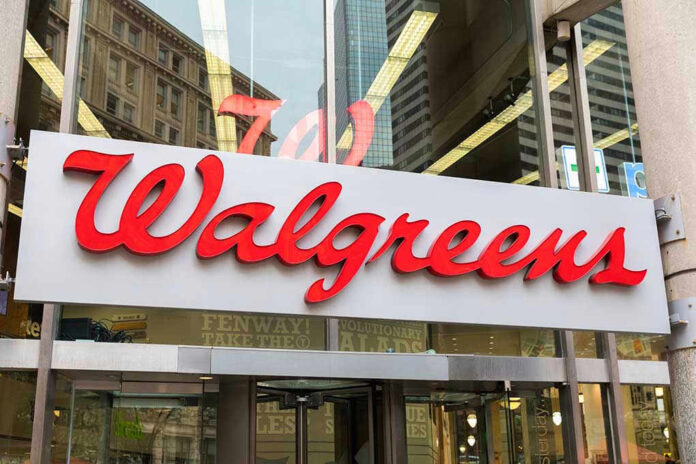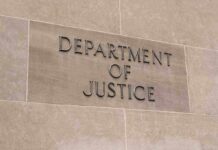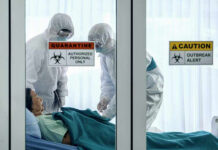Over 41,000 bottles of Walgreens saline nasal spray have been recalled nationwide for bacterial contamination, raising serious questions about consumer safety and regulatory vigilance in the wake of years of lax oversight.
Story Snapshot
- Walgreens recalled 41,328 bottles of saline nasal spray with xylitol due to Pseudomonas bacterial contamination.
- This nationwide recall highlights ongoing risks in over-the-counter healthcare products and the need for robust quality control.
- The FDA’s oversight and Walgreens’ response will shape consumer trust and industry standards moving forward.
- Details about affected batches, health risks, and regulatory follow-up remain limited as of the recall’s announcement.
Walgreens Recall Exposes Persistent Consumer Safety Gaps
On November 25, 2025, Walgreens—the nation’s leading pharmacy chain—announced the recall of over 41,000 bottles of its saline nasal spray with xylitol due to contamination by Pseudomonas, a bacterium known to cause potentially serious health problems. This recall affects a product many families routinely rely on for congestion relief and underscores the persistent vulnerabilities in the U.S. healthcare supply chain, even after years of demands for tighter regulation and corporate accountability.
Saline nasal sprays are considered safe, everyday remedies for sinus care, but contamination with Pseudomonas turns a common convenience into a potential health hazard. The threat is especially concerning given the direct application of such sprays to sensitive nasal tissues, which can provide a pathway for bacteria to enter the respiratory system. Walgreens, as a household name and trusted source for over-the-counter remedies, is now under pressure to ensure no further contaminated products reach consumers, and to uphold transparency about the scope of the recall. The lack of immediate and detailed information about affected batch numbers and distribution channels raises further concerns about the adequacy of both corporate and regulatory responses.
Regulatory Oversight and the Call for Higher Standards
The FDA is tasked with oversight of pharmaceutical product safety, but this incident reveals ongoing challenges in enforcement and preventive action. While Walgreens initiated the recall, the broader issue is whether regulatory agencies have sufficient tools and willpower—free from political correctness and red tape—to prevent such failures. Conservative critics have long warned that bloated bureaucracy and misplaced priorities can leave real threats unaddressed, while resources are wasted on ideological projects instead of protecting Americans from tangible risks like product contamination. The public now expects both Walgreens and the FDA to deliver clear guidance and robust corrective action, not just press releases.
Historically, product recalls in the nasal spray category have happened before, yet the scale of this event—over 41,000 units—places it among the more significant consumer safety incidents in recent memory. Effective recall management, including transparent consumer notification, prompt product retrieval, and honest communication about potential health risks, will be critical for rebuilding trust. Walgreens’ reputation, already challenged by past issues in retail pharmacy, now hinges on its commitment to accountability and consumer care in this ongoing crisis.
Impact on Consumers, Retailers, and the Healthcare Sector
The immediate impact of this recall is felt by consumers who purchased and may be using the affected nasal spray. They must now seek alternatives and may face uncertainty about their health if they’ve already used contaminated products. Healthcare providers, including pharmacists and physicians, are once again in the position of managing fallout from a retail supply chain failure. For Walgreens, the recall brings operational and reputational challenges—managing returns, refunds, and public relations, all while under the scrutiny of regulators and the media.
Beyond the immediate disruption, this recall could accelerate industry-wide changes. Competitors may gain market share as consumers look for alternative brands perceived as safer, while Walgreens may be forced to overhaul its quality assurance protocols. The FDA, meanwhile, faces renewed calls to strengthen oversight and ensure that regulatory focus is placed squarely on genuine health and safety issues—rather than being distracted by politically motivated agendas. The episode serves as a warning that vigilance and common sense must drive both corporate and governmental action if American families are to be protected from unacceptable risks in everyday products.
Unanswered Questions and the Need for Transparency
Critical details remain unclear: Which batch numbers are affected? How and when was the contamination discovered? What specific health risks have been reported, if any? The absence of a comprehensive root cause analysis and clear consumer guidance signals a gap in both corporate and regulatory transparency. These unanswered questions only deepen public frustration with a system that too often seems reactive rather than proactive. The conservative perspective is clear: Americans deserve diligent oversight focused on real threats, not performative regulation or virtue signaling. Only decisive, transparent action will restore confidence in the products millions trust for their health and well-being.
Sources:
Nasal Spray Recalled Nationwide for Bacterial Contamination—Over 40,000 Bottles Affected











